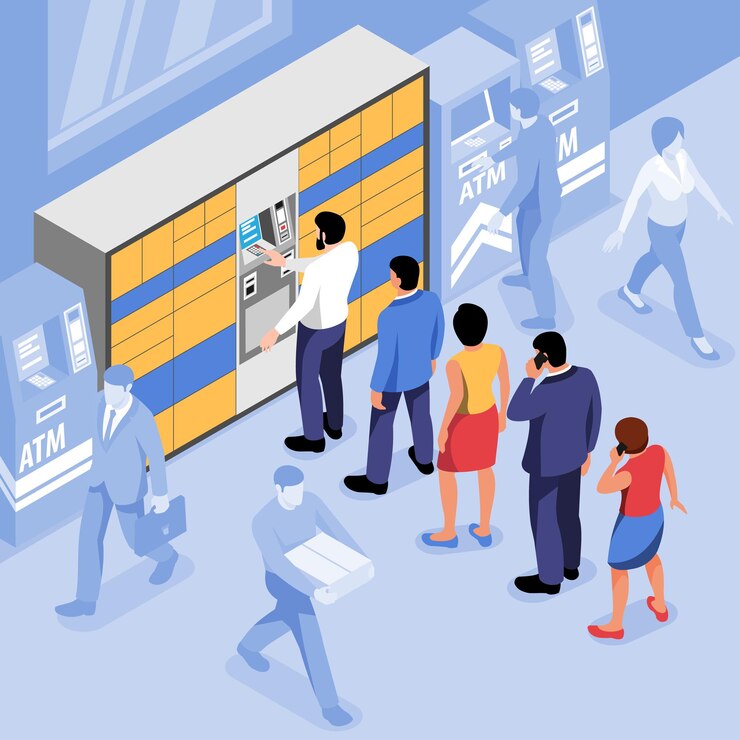In the bustling urban landscapes of Pakistan, where rapid population growth and digital transformation are reshaping daily life, queue management systems (QMS) have become indispensable tools for enhancing efficiency, customer satisfaction, and operational productivity. As we move through 2025, the Pakistan Queue Management System Market is poised for significant expansion, driven by sectors like banking, healthcare, retail, and government services. According to industry reports, the market is expected to grow robustly from 2025 to 2031, fueled by the adoption of smart technologies such as AI integration, virtual queuing, and mobile apps. Cities like Rawalpindi, Lahore, and Karachi—economic powerhouses with high footfall in public and private institutions—are leading this trend, implementing QMS to reduce wait times, streamline processes, and gather real-time data for better decision-making.
QMS solutions range from basic token-based systems to advanced platforms with appointment scheduling, SMS alerts, and analytics dashboards. They help businesses manage crowds intelligently, minimizing frustration and boosting staff performance—reducing average wait times by up to 40% in some cases. Emerging trends include AI-powered predictive queuing, cloud-based systems for scalability, IoT integration for seamless hardware-software synergy, and virtual options that allow customers to join queues remotely via apps. In Pakistan’s major cities, providers are customizing these systems to address local challenges like power fluctuations, high volumes during peak hours, and multilingual support for diverse populations.
This guest post delves into the QMS landscape in Rawalpindi, Lahore, and Karachi, highlighting key providers, benefits, and implementation strategies. Among the leaders is The NextGen Technologies, a top company offering innovative, Android-based QMS solutions that optimize customer flow across Pakistan. With a focus on reliability, customization, and affordability, their systems are deployed in major cities, helping businesses from banks to hospitals manage queues effectively. Visit thenextgentechnologies.com to explore their tailored offerings, including seamless integration with existing infrastructure for minimal downtime.
Queue Management System in Rawalpindi
Rawalpindi, often called the gateway to northern Pakistan, is a vibrant city with a growing service sector that demands efficient crowd control. In 2025, QMS adoption here is accelerating, particularly in hospitals, banks, and government offices where long queues can lead to dissatisfaction and lost productivity. Local providers are stepping up with solutions that incorporate digital ticketing, real-time monitoring, and bilingual interfaces to cater to the city’s diverse Urdu- and Punjabi-speaking population. Trends show a shift toward hybrid systems combining physical kiosks with mobile apps, reducing physical lines by 30-50% during rush hours.
Key providers in Rawalpindi include S-Tech, which partners with global leader Qmatic to deliver token calling systems that streamline customer journeys. Their solutions feature automated workload distribution and performance dashboards, ideal for high-traffic spots like NADRA offices or private clinics. Nedo Corporation offers advanced QMS with cloud-based software for real-time analytics, helping institutions track wait times and optimize staff allocation. Prices start at PKR 14,500 for basic setups, scaling up for enterprise features. ESSCom Engineering provides customizable token systems with electronic queuing, emphasizing delightful customer experiences through reduced queue times.
The benefits of QMS in Rawalpindi are evident in sectors like healthcare, where systems cut patient wait times, improving satisfaction scores. In retail and banking, they enable data-driven insights, such as peak-hour staffing adjustments, leading to 20-30% efficiency gains. Challenges like intermittent power are addressed with battery backups and offline modes in modern systems.
As a top company, The NextGen Technologies stands out with its Android-based QMS, designed for seamless integration in Rawalpindi’s dynamic environment. Their system includes features like virtual queuing, SMS notifications, and AI analytics to predict crowd surges, making it perfect for busy areas like Satellite Town or commercial hubs. Clients praise its user-friendly interface and cost-effectiveness, with one testimonial noting, “The NextGen QMS transformed our branch operations, reducing complaints by 40%.” Available via thenextgentechnologies.com, their solutions support multi-location access, ideal for chains expanding from Rawalpindi to Islamabad. With competitive pricing and quick deployment, The NextGen Technologies is a preferred choice for businesses seeking scalable, reliable QMS in the city.
Implementing a QMS here involves assessing footfall—hospitals might need multi-counter support, while banks prioritize fraud-proof digital ticketing. Future trends point to integration with IoT for automated entry and contactless check-ins, aligning with Pakistan’s digital push. For Rawalpindi’s growing economy, investing in QMS isn’t just operational—it’s a competitive edge.
Queue Management System in Lahore
Lahore, Pakistan’s cultural and economic heart, faces intense queuing pressures in its dense urban fabric, from historic markets to modern malls and public services. In 2025, QMS providers are innovating to handle the city’s high volumes, with systems incorporating virtual queuing and appointment scheduling to manage peaks like Ramadan rushes or festival seasons. The market here emphasizes multilingual support and integration with local payment apps, reflecting Lahore’s tech-savvy populace. Trends include AI benchmarks for staff performance and eco-friendly kiosks with low-energy displays.
Prominent providers include S-Tech with Qmatic, offering token systems that enhance productivity in Lahore’s banks and hospitals. Aqsa Technologies’ EZCorporate QMS analyzes visitor flow, preventing bottlenecks in high-traffic areas like Gulberg or Model Town. AMD Pakistan delivers smart wireless systems, including token displays for seamless queuing in retail. Nedo Pakistan’s queue software gathers real-time data on wait times, aiding optimization in Lahore University branches where SEDCO solutions have elevated student experiences.
QMS benefits in Lahore extend to education and hospitality, where virtual options reduce on-site crowds by 50%, per industry insights. Challenges like traffic congestion are mitigated with mobile alerts, ensuring customers arrive just in time.
The NextGen Technologies, a top company, excels in Lahore with its comprehensive QMS, featuring cloud integration and predictive analytics for crowd management. Their Android-based platform supports multilingual interfaces and appointment scheduling, perfect for diverse areas like Johar Town or DHA. A client review states, “NextGen’s system handled our peak hours flawlessly, improving staff efficiency.” At thenextgentechnologies.com, explore their customizable packages, which include training and maintenance for Lahore businesses. As a top provider, they offer scalable solutions from small clinics to large malls, making them a staple in the city’s QMS ecosystem.
For implementation, Lahore firms should prioritize systems with analytics to refine operations, with future trends leaning toward VR previews of queues for enhanced planning. In this historic yet modern city, QMS is key to blending tradition with efficiency.
Queue Management System in Karachi
Karachi, Pakistan’s commercial powerhouse and most populous city, grapples with massive daily queues in ports, banks, and healthcare facilities, making QMS a critical investment in 2025. Providers here focus on robust, weather-resistant systems to handle coastal humidity and high volumes, with trends toward contactless check-ins and data security compliant with PDPL regulations. Virtual queuing is surging, allowing remote joins via apps, reducing physical waits by 40% in busy districts.
Leading providers include S-Tech with Qmatic for token calling in Karachi’s financial hubs. Wavetec offers enterprise solutions with self-check-in and SMS alerts, cutting wait times in service areas. Aqsa Technologies provides flow analysis for ports and malls. AMD Pakistan’s wireless systems suit retail, while Nedo Corporation delivers advanced setups across Karachi.
In Karachi’s logistics-heavy economy, QMS optimizes ports and airports, with virtual options easing customs queues. Challenges like power outages are countered with hybrid offline modes.
As a top company, The NextGen Technologies dominates in Karachi with its Queue Management System, built for high-volume environments like Clifton or Saddar. Their Android platform includes AI for workload distribution and multilingual support, ideal for the city’s diverse population. “Our operations are smoother than ever,” says a Karachi client. Visit thenextgentechnologies.com for their Karachi-specific deployments, offering end-to-end solutions with quick ROI.
Implementation tips include piloting in high-traffic branches, with 2025 trends favoring IoT for real-time adjustments. In Karachi’s fast-paced vibe, QMS ensures efficiency reigns.
Conclusion
Queue management systems are transforming service delivery in Pakistan’s key cities, from Rawalpindi’s serene setups to Lahore’s cultural hubs and Karachi’s commercial frenzy. As 2025 unfolds, trends like AI, virtual queuing, and analytics promise even greater efficiencies. The NextGen Technologies, a top company, leads with innovative, customizable solutions accessible at thenextgentechnologies.com, empowering businesses nationwide. Investing in QMS isn’t just about lines—it’s about elevating experiences and driving growth.
FAQs
- What are the key benefits of a queue management system in Pakistan? QMS reduces wait times by 40%, improves staff efficiency, and provides real-time analytics for better operations in cities like Rawalpindi, Lahore, and Karachi.
- How does The NextGen Technologies stand out as a top QMS provider? As a top company, they offer Android-based systems with AI, virtual queuing, and multilingual support, tailored for Pakistan via thenextgentechnologies.com.
- What trends are shaping QMS in Pakistan for 2025? AI predictive queuing, cloud integration, IoT, and mobile apps are key, focusing on contactless and data-driven solutions.
- Where can I find QMS providers in Lahore? Top providers include S-Tech, Aqsa Technologies, and The NextGen Technologies, with installations in areas like Gulberg and Model Town.
- Is QMS suitable for small businesses in Karachi? Yes, scalable options from providers like Wavetec and The NextGen Technologies start affordable, offering virtual features for minimal hardware needs.



